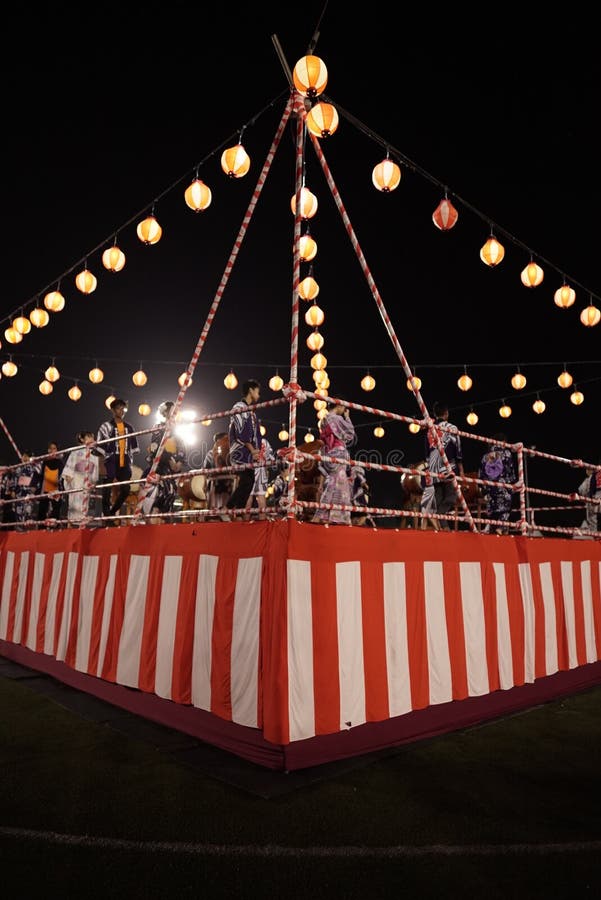
Mokuren did this and, thus, saw his mother's release. Buddha instructed him to make offerings to the many Buddhist monks who had just completed their summer retreat on the fifteenth day of the seventh month. Greatly disturbed, he went to the Buddha and asked how he could release his mother from this realm. The Buddhist tradition originates from the story of Maha Maudgalyayana (Mokuren), a disciple of the Buddha, who used his supernatural powers to look upon his deceased mother only to discover she had fallen into the Realm of Hungry Ghosts and was suffering. The Japanese Bon Festival originated from the Ghost Festival of China, which is itself a combination of the Buddhist Yúlánpén ( Chinese: 盂蘭盆) Festival and the Taoist Zhongyuan ( 中元) Festival.

(video) Neighborhood Bon Odori festival in Adachi-ku, Tokyo (2014) These three festival days are not listed as public holidays, but it is customary for people to be given leave. Kyū Bon is celebrated in areas such as the northern part of the Kantō region, Chūgoku region, Shikoku, and Okinawa Prefecture. One exception was in 20, when the solar and lunar calendar matched, and so Hachigatsu Bon and Kyū Bon were celebrated on the same day. Kyū Bon (Old Bon) is celebrated on the 15th day of the ninth month of the lunar calendar, and so differs each year, which appears between August 8 and September 7. Hachigatsu Bon (Bon in August), based on the lunar calendar, is celebrated around the 15th of August and is the most commonly celebrated time. Shichigatsu Bon (Bon in July) is based on the solar calendar and is celebrated around the 15th of July in eastern Japan ( Kantō region such as Tokyo, Yokohama and the Tōhoku region), coinciding with Chūgen.
When the lunar calendar was changed to the Gregorian calendar at the beginning of the Meiji era, the localities in Japan responded differently, which resulted in three different times of Obon. The festival of Obon lasts for three days however, its starting date varies within different regions of Japan. It has been celebrated in Japan for more than 500 years and traditionally includes a dance, known as Bon Odori. This Buddhist– Confucian custom has evolved into a family reunion holiday during which people return to ancestral family places and visit and clean their ancestors' graves when the spirits of ancestors are supposed to revisit the household altars.

Obon ( お盆) or just Bon ( 盆) is a Japanese Buddhist custom to honor the spirits of one's ancestors.


 0 kommentar(er)
0 kommentar(er)
